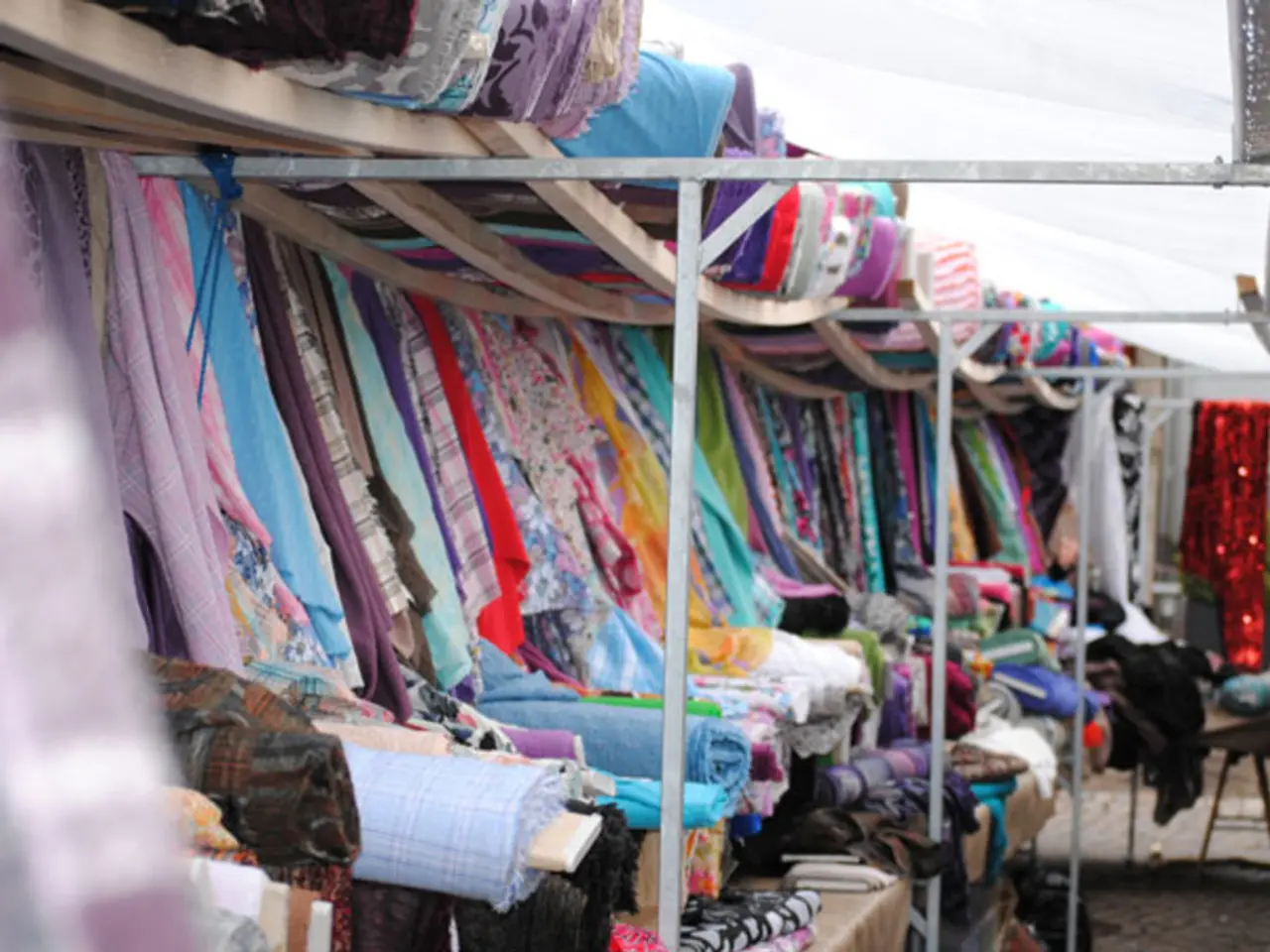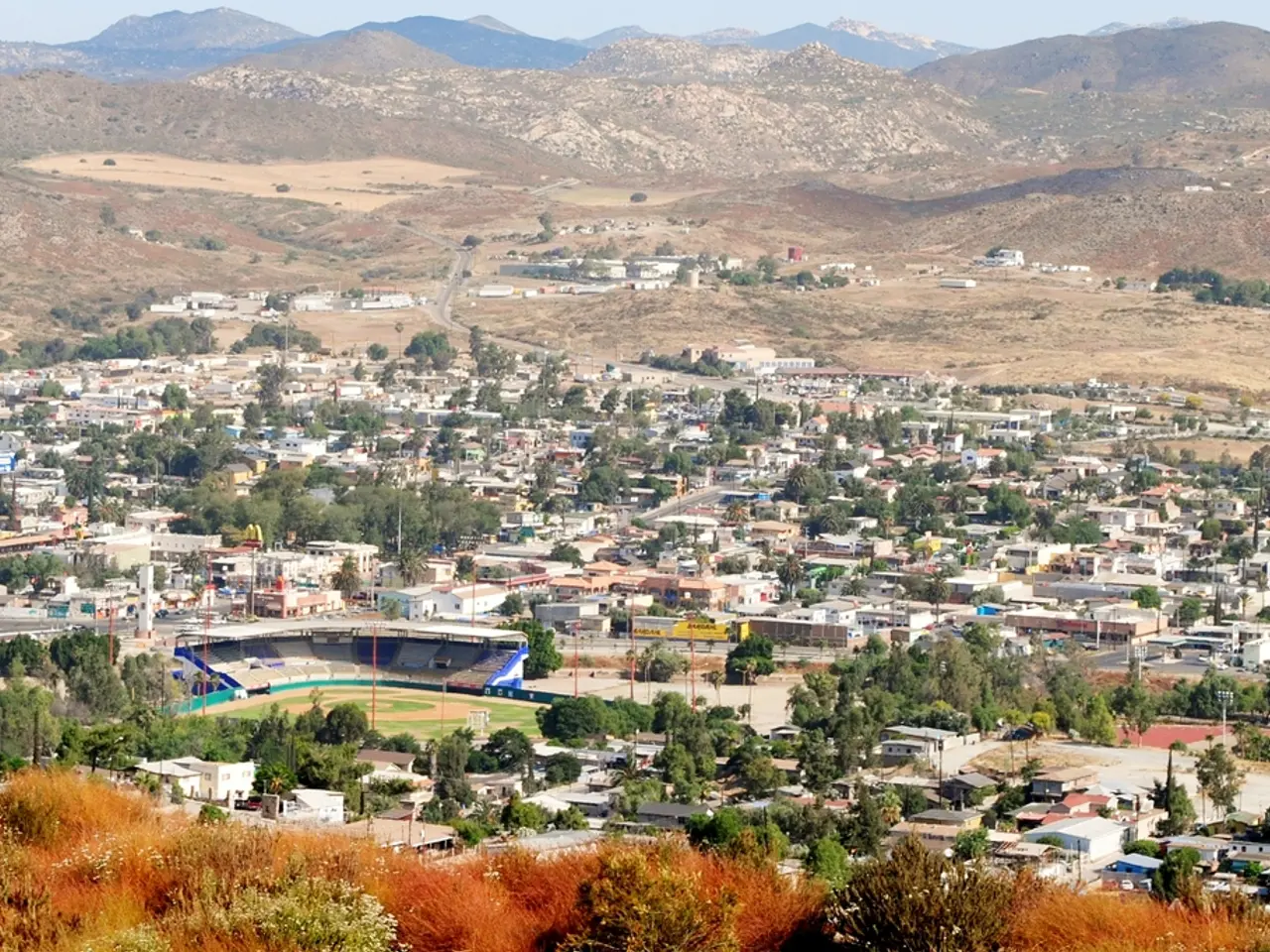Abandoned Garments from UK Brands Discovered in Ghana's Protected Marshlands
Fast fashion's dark side is never far from the truth, with a significant portion of clothing waste from the UK ending up in the protected wetlands of Ghana. This disturbing reality is brought to light in the latest report by Unearthed and Greenpeace Africa.
Fast Fashion: A Global Dumpster Fire
The United Kingdom tosses an astronomical sum of 1.5 million tons of discarded textiles each year. Of that mind-boggling number, only 650,000 tons are earmarked for recycling or reuse, leaving a shocking 730,000 tons to be burned, buried, or shipped overseas. The largest recipient of this unwanted cargo is Ghana, which receives a disproportionate share compared to other nations.
Kantamanto, the world's biggest second-hand clothing marketplace, is Ghana's hub for the used clothing trade. Over 1,000 tons of apparel arrive here weekly, with declining quality resulting in clothing that falls apart the moment it's unpacked.
"Green" Wetlands Turn Trash Heaps
Discarded clothing has made its way to Ghana's Densu Delta, a Ramsar site of international importance. This region is a biodiversity powerhouse, hosting an array of rare and endangered species, including the curlew sandpiper, roseate tern, leatherback turtle, and green turtle. Three illegal dumpsites have been discovered within the wetland itself, two of which are situated within the marsh, while a third was found upstream along the river leading to the conservation reserve.
These dumpsites threaten the very existence of these precious ecosystems and the communities that rely on them. Locals report finding discarded clothing in their fishing nets, fish now mingling with clothes never meant for the ocean. The once-fresh river water is now blackened and unfit for human consumption.
From High Streets to Wetlands: Have We Learned Nothing?
Major UK brands such as Zara, H&M, Primark, and M&S have been found among the trash heaps of Ghana's wetlands. These companies, however, have responded to the claims by admitting that handling textile waste presents industry-wide issues. They counter with efforts like take-back programs, repair services, and partnerships with organizations like Oxfam.
But even with these measures in place, there are still calls for Extended Producer Responsibility (EPR) legislation to hold fashion brands accountable for the impacts of their products at the end of their life cycle. It's clear that relying on voluntary action may not be enough to solve this pressing issue.
Ghanaians have showcased their passion for combating this crisis by advocating for EPR laws in the EU and the UK. The battle is far from over, with illegal dump sites popping up and new challenges emerging. If we don't act now, these ecosystems and communities will continue to be plagued by fashion trash produced half a world away.
It's high time we pay the real cost of fast fashion, acknowledging the environmental and social damage it wreaks on far-off lands and taking swift and concerted action to turn the tide.
[1] Greenpeace Africa and Unearthed, "UK fashion brands' clothes found polluting protected wetlands in Ghana," The Guardian, October 13, 2022, https://www.theguardian.com/environment/2022/oct/13/uk-clothing-waste-ghana-pollution[2] Sarah Crowell, "Unsold clothes are being found dumped in Ghana by brands including Asda, Marks & Spencer, and Next," My London, October 13, 2022, https://www.mylondon.news/news/north-london-news/unwanted-clothes-dumped-ghana-marks-19439105[3] Lucy Siegle, "What about the waste? High street retailers must end the global dumping of unsold clothes," The Observer, October 16, 2022, https://www.theguardian.com/sustainable-business/commentisfree/2022/oct/16/high-street-retailers-unsold-clothes-global-dumping-ghana[4] Suzannah Rigg, "The U.K.’s Trash Pile Is Poisoning Ghana," The New York Times, October 16, 2022, https://www.nytimes.com/2022/10/16/opinion/uk-ghana-clothing-waste.html[5] Christine Overby, "3 Reasons Ghana Is West Africa's Top Destination for Secondhand Clothes," How We Made It In Africa, December 10, 2018, https://howwemadeitinafrica.com/popular/ghana-secondhand-clothing-market/
- The shocking reality of 730,000 tons of textile waste from the UK being burned, buried, or shipped overseas each year highlights the urgent need for improved ESG reporting in the fashion industry.
- The environmental science behind climate-change shows us that discarded clothing, especially in protected wetlands such as Ghana's Densu Delta, threatens precious ecosystems and the species that call them home.
- As the secretary of a fashion-and-beauty company, it's essential to consider the impact of our lifestyle choices on environmental policies and legislation, ensuring that our industry takes responsibility for its greenhouse gas emissions.
- The latest report by Greenpeace Africa and Unearthed sheds light on the fashion industry's dark side, revealing that major brands' clothes are polluting protected wetlands in Ghana.
- The disturbing trend of fast fashion trash ending up in the environment has sparked a call for stronger policy-and-legislation, such as Extended Producer Responsibility (EPR), to tackle this global issue.
- In the face of political pressure and public outcry, it's crucial for the fashion industry to respond proactively and collaboratively to minimize the social, environmental, and health impacts of their product's lifecycle, committing to a sustainability-focused lifestyle for the betterment of the planet.




